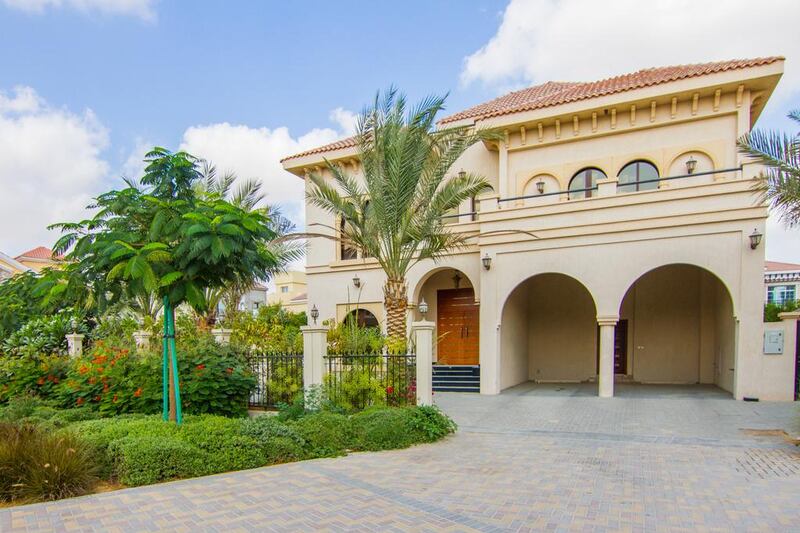Prices in Dubailand's mature residential communities remain under pressure as more affordable homes are brought on to market, property consultancies have said.
Prices of completed villas at Arabian Ranches, which make up 21 per cent of all villa sales in Dubai, are currently 17.3 per cent below their 2014 peak, according to Haider Tuaima, the research manager at consultancy Valustrat.
Villas at Victory Heights in Dubai Sports City, which make up 5 per cent of villa sales, are 11.4 per cent below their peak.
About a quarter of all the homes due for completion this year, or 6,660 units, are in Dubailand — up from 3,100 last year. In total, about 24,500 units are due to be added to Dubailand's supply by 2021.
Affordable homes in Dubai Sports City will be the main centre of activity for completions this year, with 2,100 units expected to be handed over, according to Valustrat. This will be followed by Liwan (1,000 units) and Arjan (940).
"This new supply may create downward pressure on rental prices, as more choice is given to potential tenants," Mr Tuaima said.
“With landlords accepting three to four cheques and some offering rent-free periods, asking rents declined by 6.5 per cent compared to last year.”
Yet despite the overall decline in rents, units in more affordable communities have performed better as tenants have sought cheaper space.
“Sports City and Remraam bucked the trend and are now around 16 per cent higher,” he said.
Median rents in Dubailand currently stand at about Dh45,000 for a studio apartment, Dh62,000 for a one-bed and Dh83,000 for a two-bed, according to Valustrat. Villa rents range from Dh148,000 for a three-bed property to Dh247,000 for a five-bed.
According to Cavendish Maxwell’s Property Monitor database, just over 7,400 homes are due to be completed in Dubailand this year — 3,948 of which are villas.
Lynnette Abad, the head of Property Monitor and a partner at the firm, said that prices of existing property in Dubailand have been affected as a result the completion of a greater number of affordable homes.
"Prices in the original Arabian Ranches have been affected both in sales and rentals. Rentals have declined by more than 5 per cent since January 2017 and sales by 1.2 per cent."
Earlier this year, Cavendish Maxwell reported a sharp decline in average transaction prices for villas and town houses to just over Dh2 million in the first quarter of this year — down from Dh3.59m in the previous quarter. This was attributed to the change in demand for smaller, more affordable units.
Ms Abad said that Dubailand, in particular, “has been a very popular area due to the affordable mid-income housing that has come on the market”.
For instance, three bedroom town houses in Emaar Properties’ Mira development in its Reem community cost about Dh1.7m, making them much more affordable than the nearby Arabian Ranches villas, where new homes in Arabian Ranches II range from just over Dh3m for a three-bed home up to Dh4.8m for five-bed units. Meanwhile, apartments in Mazaya Holding’s Queue Point scheme start from Dh550,000.
Ms Abad says Dubailand is “the direction in which development has been moving over the past years due to the amount of land available”.
Craig Plumb, the head of research at broker JLL Mena said that while a lot of stock is coming on to the market in Dubailand, developers — especially the big four firms of Damac, Dubai Properties, Emaar Properties and Nakheel — are responsible for the delivery of a significant chunk of supply.
"They do have the ability — to some extent — to hold off. It's a two-edged sword.They don't want to hold off their projects too long, otherwise they are not getting in the proceeds for the ones that have sold," said Mr Plumb.
“But because they can control the supply, to some extent they can phase projects out. What they have learnt to do much more is break it down into smaller parcels to bring in one phase at a time.”
mfahy@thenational.ae






